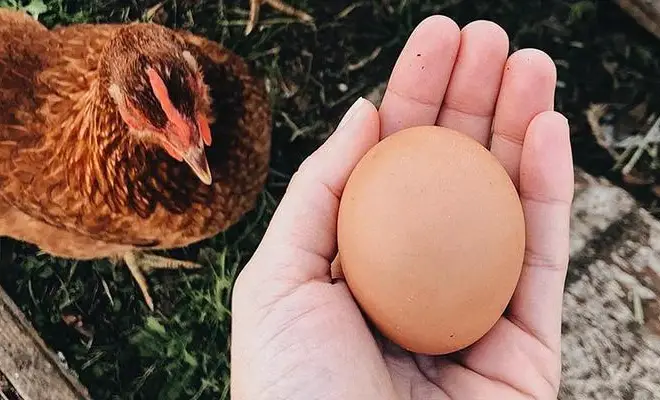26 Ways to Make Your Chickens Lay More Eggs!

Having a steady supply of fresh eggs is a dream for many backyard chicken owners. However, maintaining consistent egg production can be a challenge.
But how to make chickens lay more eggs? First, you’ll need dietary tips like high-quality feed, varied diets, and supplements. Next, we’ll optimize your coop with better nesting boxes, dust baths, and spacing. Finally, we’ll do flock management, lighting strategies, and enrichment activities to boost egg-laying. Implement these tips for a happy, productive flock and more fresh eggs.
Want to know more in detail? Let’s share my well-researched 26 ways to make chickens lay more and more!
Table of Contents
What Can I Give My Chickens to Lay More Eggs? List of 26 Ways!

As an experienced backyard chicken owner, I understand the importance of having a consistent and bountiful egg supply. But how to stimulate egg laying in chickens naturally? Or what supplements to increase egg production in chickens?
Let’s share 26 clever strategies that have proven highly effective!
- Quality Feed: A balanced layer feed formulated for egg production provides the essential nutrients (protein, calcium) needed for consistent egg laying. Think of it like high-octane fuel for your egg machine! For this, my best pick items for chicken feed are corn, oats, wheat, peas, and oysters.
- Varied Diet: Supplement with healthy treats like fruits, veggies, and yogurt (in moderation) to add vitamins, minerals, and variety to their diet. A little nutritional excitement can keep your hens happy and productive.
- Garlic/Eggshells: Some believe garlic can boost the immune system and eggshells offer extra calcium for strong shells. While research is inconclusive, these additions might give your hens a slight production nudge.
- Herbal Supplements: Certain herbs like chamomile and peppermint may have stress-reducing properties, and a calmer hen is more likely to lay.
- Calcium Sources: Oyster shells or crushed limestone provide readily available calcium for strong eggshells. Think of it as building blocks for their impressive egg-laying feats!
- Electrolytes/Apple Cider Vinegar: Electrolytes help maintain hydration, crucial for egg production. Apple cider vinegar (diluted) might aid digestion, potentially improving nutrient absorption.
- Treats: Small amounts of treats like mealworms or scratch grains can encourage foraging behavior and keep your hens happy and laying.

- Nesting Boxes: Provide enough private nesting boxes (1 per 3-4 hens) with comfortable bedding to encourage egg-laying. A cozy haven makes them feel secure enough to deposit their treasures.
- Dust Bath: A dust bath area allows chickens to clean their feathers and keep mites at bay. Reduced stress and healthy feathers can indirectly contribute to better egg production.
- Coop Space/Ventilation: Ample coop space (around 4 sq ft per hen) minimizes stress and allows for natural movement. Good ventilation ensures fresh air and prevents respiratory issues that could impact egg laying.
- Clean Coop: A clean coop reduces stress and the risk of diseases that can affect egg production. Think of it as creating a healthy and hygienic workspace for your feathered egg-layers!
- Temperature: Maintain a comfortable coop temperature (around 65-75°F) for optimal health and egg laying. Extremes in temperature can disrupt their laying cycle.
- Proper Spacing: Overcrowding can lead to stress and pecking order issues, potentially affecting egg production.
- Rotation: Regularly rotating your chickens’ outdoor run area prevents them from depleting the soil of nutrients and keeps them interested in foraging, which can stimulate egg laying.
- Free-Range Access: If possible, allowing access to a secure outdoor run provides exercise, sunlight (vitamin D3), and natural foraging opportunities. All of which can contribute to increased egg production via free-ranging.
- Lighting Schedule: Simulate natural daylight patterns (14-16 hours in spring/summer, less in winter) with timers for consistency. This helps regulate their hormones and egg-laying cycle.
- Artificial Light: In winter months, consider adding a short period of artificial light in the morning to maintain a longer daylight simulation and potentially encourage more egg laying.
- Consistent Routine: Maintaining a consistent routine (feeding, coop cleaning) creates a sense of security and reduces stress, allowing your hens to focus their energy on egg production.
- Minimize Stress/Predators: Minimize stressors like loud noises or introducing new predators near the coop. A stress-free environment keeps your hens happy and laying consistently.
- Cull Non-Layers: Hens naturally slow down their egg-laying after a few years. Removing unproductive hens allows for better resource allocation within the flock and potentially stimulates younger hens to lay more.
- Pest Control: A regular pest control program keeps mites, lice, and other parasites at bay. Healthy hens are more likely to lay more eggs.
- Natural Behaviors: Providing opportunities for natural behaviors like scratching and dust bathing keeps them physically and mentally stimulated, leading to potentially higher egg production.
- Manage Molting: During molting (when hens lose feathers), adjust feed to a higher protein content to support feather regrowth and minimize the egg production decline that can occur during this time.
- High-Laying Breeds: Choosing breeds known for high egg production (Leghorns, Rhode Island Reds) gives you a head start. Genetics play a role in a hen’s natural laying ability.
- Enrichment Activities: Providing enrichment activities or boredom busters like peck toys or hiding treats in the coop can keep your hens entertained and reduce boredom, which can sometimes lead to decreased egg production. Mental stimulation is important for happy and productive hens!
- Health Monitoring: Regularly monitor your chickens’ health for signs of illness or injury. A healthy hen is a productive hen!
Take more advice from the following video to make hens lay more eggs.
FAQs
Have more queries in mind? Check out this Q&A section and see if it helps you get more ideas about chicken egg production.
Q. Will my chickens lay eggs every day?
No, even healthy hens with optimal conditions won’t lay every day. They naturally take rest days and periods of lower production.
Q. Can I give my chickens kitchen scraps?
Yes, in moderation! Fruits, veggies, and yogurt can be healthy treats, but avoid overfeeding as it can impact their main diet.
Q. How long do chickens typically lay eggs for?
Most hens lay consistently for 2-3 years, then production naturally slows down.
Final Word
Want to guarantee a constant flow of fresh eggs from your backyard? With my years of experience raising chickens, I say you implement these 26 strategies to ensure your hens lay more! From serving up nutritious meals to creating cozy nesting spots, every step is surely effective.
So, why wait? Try these practical tips and watch as your hens reward you with a daily supply of delicious eggs. Trust me, there’s nothing quite like the satisfaction of gathering lots of eggs laid by your own happy and healthy hens.






